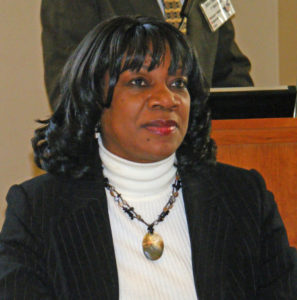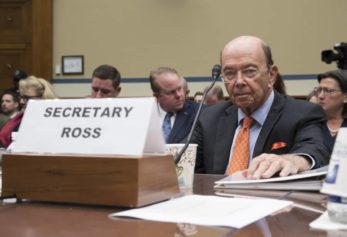The state of Georgia steadily continues a backwards march in giving its citizens the constitutional right to the ballot, moving closer to further slashing the number of early voting days in a measure that voting rights advocates claim is clearly targeted at Black residents.
The bill to cut the number of early voting days from 21 to 12 moved out of committee last week—with a vote along party lines—and will likely pass the Republican-controlled legislature when it comes up for a vote, though a date hasn’t been set.
Early voting is extremely popular in the state—more than a third of Georgia residents voted early in the midterm elections last November and more than half voted early in the 2008 election, when Barack Obama was elected. The George legislature since 2008 has already cut the number of early voting days from 45 to 21.
In a country that pays major lip service to the idea of the sanctity of the ballot, the moves to curb the accessibility of the ballot that have occurred in dozens of states in recent years are mind-boggling. But voting rights advocates claim no one should be fooled by the intent of these Republican-controlled legislatures: They are clearly trying to restrict access to voters of color, who are more likely to use early voting and Sunday voting.
Francys Johnson, president of the Georgia NAACP, told ThinkProgress that the measure would suppress the votes of the state’s growing minority population.
“People of color tend to utilize early voting, and I think at the heart of all of this is an attempt to reduce the opportunities for people to let their voice be heard,” he said. “They’re saying to working Georgians and seniors and communities of color and the young: ‘We’re not interested in your participation.”
If the voting days are reduced further, Johnson said the 2016 presidential election would be significantly impacted.
“We could see 5-to-7-hour lines in some places of people standing and waiting to cast a ballot,” he predicted. “Even in this past election, the Secretary of State’s website crashed on Election Day because it was overwhelmed by demand. But the worst is that it would send a chilling message to voters, especially those in vulnerable communities.”
When pressed for the motivation behind such changes, lawmakers typically come up with highly questionable reasoning. Georgia State Rep. Ed Rynders, R-Leesburg, a co-sponsor of the bill, told the Albany (Ga.) Herald that his measure would bring uniformity to early voting across the state, since not all voting districts are open the same number of days.
“Some of the concerns that arose (during the most recent early voting period) were clarity and uniformity,” Rynders said Tuesday evening. “There were complaints of some voters having more opportunities than others. For instance, in Fulton County [which includes Atlanta] last year, early voting was conducted for 19 straight days, including two Saturdays and two Sundays.”
But rather than achieving uniformity by ensuring that all districts were open for the 21 days, the bill seeks to get it by cutting down the days Georgia residents can vote.
Georgia representatives showed their true feelings last year when some areas opened up early voting on Sunday in heavily-trafficked shopping areas. In response, some Republican officials publicly complained that this made it too easy for African Americans to cast a ballot.
If cost is a concern, Georgia House Minority Whip Carolyn Hugley (D), who is African-American, told ThinkProgress that local county officials have been calling her office with concerns the cuts would make elections more expensive rather than cheaper.
“If you restrict the number of days, officials in our biggest counties say they will have to have more polling locations and additional machines in order to provide adequate access to their citizens,” she said. “Voting is a fundamental right of citizenship and that should be the first and primary concern, not that you might save a few dollars here or there for certain counties.”
Hugley said lawmakers in her state were able to get away with passing such measures because the Supreme Court struck down Section 4 of the Voting Rights Act, relieving many states from the requirement that they get changes in voting laws pre-approved by the Justice Department.
“If this is what they think fairness looks like,” she said, “in my mind it says that Georgia is not ready to come out from under the protections of the Voting Rights Act. We certainly cannot say that we’re encouraging people to exercise their right to vote if we’re restricting the number of days of access to the polling places.”

